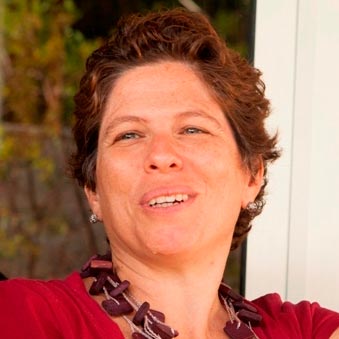Present Pasts
Memory of Slavery and Politics of Reparation in Brazilian Public Policies on Education
the researchers
 David Scott is a professor in the Department of Anthropology at Columbia University. Especially since the publication of "Refashioning Futures: Criticism after Postcoloniality" (1999) and "Conscripts of Modernity: The Tragedy of Colonial Enlightenment" (2004) has been dedicated to thinking the reconceptualization of the ways of narrating the history of the colonial past in the present pos-colonial. For this, it has developed several researches, having the Caribbean as main field of work, on tradition and generations, dialogue and criticism, self-determination and sovereignty, tragedy and temporality, transitional justice and liberalism. His most recent book "Omens of Adversity: Tragedy, Time, Memory, Justice" (2014) addresses some of these issues. He is currently completing Stuart Hall's voice: Style, Dialogue, and the Ethos of Receptive Generosity, based on lectures given at the University of the Westerm Cape in South Africa in 2013 on the English theorist Stuart Hall , One of the authors who inform the approach of the present project, and initiating study on the possibility of reparations for the slavery in the New World as historical injustice and its narrative implications, line of research in which the present proposal is included. David Scott is the founder and editor of the academic journal Small Ax: The Caribbean Journal of Criticism and is the general coordinator of this project along with Hebe Mattos.
David Scott is a professor in the Department of Anthropology at Columbia University. Especially since the publication of "Refashioning Futures: Criticism after Postcoloniality" (1999) and "Conscripts of Modernity: The Tragedy of Colonial Enlightenment" (2004) has been dedicated to thinking the reconceptualization of the ways of narrating the history of the colonial past in the present pos-colonial. For this, it has developed several researches, having the Caribbean as main field of work, on tradition and generations, dialogue and criticism, self-determination and sovereignty, tragedy and temporality, transitional justice and liberalism. His most recent book "Omens of Adversity: Tragedy, Time, Memory, Justice" (2014) addresses some of these issues. He is currently completing Stuart Hall's voice: Style, Dialogue, and the Ethos of Receptive Generosity, based on lectures given at the University of the Westerm Cape in South Africa in 2013 on the English theorist Stuart Hall , One of the authors who inform the approach of the present project, and initiating study on the possibility of reparations for the slavery in the New World as historical injustice and its narrative implications, line of research in which the present proposal is included. David Scott is the founder and editor of the academic journal Small Ax: The Caribbean Journal of Criticism and is the general coordinator of this project along with Hebe Mattos.
 Hebe Mattos
is Full Professor of History of Brazil at the Fluminense Federal University, Cientista do Nosso Estado of FAPERJ and researcher 1A of CNPq. She is a Visiting Professor at Columbia University at the time of this proposal, where she holds the Ruth Cardoso Chair at the Center for Brazilian Studies, participates in the discussions of the Digital Black Atlantic discussion group and is finishing a book on black identity and memory of slavery in Brazil . She is the author of several books, articles and book chapters on slavery and post-emancipation in Rio de Janeiro, among them Das Cores do Silêncio (1995, 1998, 2013), which has just got its third edition, edited by the Unicamp Publishing House. She is an associate coordinator of the Laboratory of Oral History and Image (LABHOI / UFF), where she coordinates since 1994 the collective project Memórias do Cativeiro-Present Pasts that resulted in the book Memórias do Cativeiro (2005), in several articles and book chapters published in Brazil and abroad, and in 4 documentary films (labhoi.uff.br/passadospresentes). She also has extensive experience in collaborative research projects in the form of digital platforms, both nationally and internationally, highlighting the Identidades do Rio project, supported by FAPERJ (pensario.uff.br) and the International Film Festival (labhoi.uff.br/rff), a trilingual documentary film platform about the memory of slavery, developed in collaboration with research institutions in France and Canada. She is the general coordinator of this proposal along with David Scott.
Hebe Mattos
is Full Professor of History of Brazil at the Fluminense Federal University, Cientista do Nosso Estado of FAPERJ and researcher 1A of CNPq. She is a Visiting Professor at Columbia University at the time of this proposal, where she holds the Ruth Cardoso Chair at the Center for Brazilian Studies, participates in the discussions of the Digital Black Atlantic discussion group and is finishing a book on black identity and memory of slavery in Brazil . She is the author of several books, articles and book chapters on slavery and post-emancipation in Rio de Janeiro, among them Das Cores do Silêncio (1995, 1998, 2013), which has just got its third edition, edited by the Unicamp Publishing House. She is an associate coordinator of the Laboratory of Oral History and Image (LABHOI / UFF), where she coordinates since 1994 the collective project Memórias do Cativeiro-Present Pasts that resulted in the book Memórias do Cativeiro (2005), in several articles and book chapters published in Brazil and abroad, and in 4 documentary films (labhoi.uff.br/passadospresentes). She also has extensive experience in collaborative research projects in the form of digital platforms, both nationally and internationally, highlighting the Identidades do Rio project, supported by FAPERJ (pensario.uff.br) and the International Film Festival (labhoi.uff.br/rff), a trilingual documentary film platform about the memory of slavery, developed in collaboration with research institutions in France and Canada. She is the general coordinator of this proposal along with David Scott.
 Eric Foner holds the DeWitt Clinton Chair in the History department of Columbia Univesity, specializing in United States history during the Civil War and Reconstruction, with numerous books published. His most recent book, The Fiery Trial: Abraham Lincoln and American Slavery (2011) won the Pulitzer Prizes Bancroft and Lincoln. Nothing But Freedom: Emancipation and Its Legacy (1983) was translated and published in Brazil in 1988 (Nothing Beyond Freedom). He was president of the American Historical Association and the Society of American Historians and is one of the most influential historians of the United States in post-abolition historiography in Brazil. Eric Foner also wrote books for elementary education and curated exhibitions, including the award-winning "The House Divided: America in the Lincoln Age" exhibition of the Chicago Historical Society. In this project, he will work as a special consultant on the public history of slavery and post-emancipation, as well as participate in debates on slavery, reparation and educational policies in the Atlantic world and in the curation of cases to be incorporated into the proposed digital platforms.
Eric Foner holds the DeWitt Clinton Chair in the History department of Columbia Univesity, specializing in United States history during the Civil War and Reconstruction, with numerous books published. His most recent book, The Fiery Trial: Abraham Lincoln and American Slavery (2011) won the Pulitzer Prizes Bancroft and Lincoln. Nothing But Freedom: Emancipation and Its Legacy (1983) was translated and published in Brazil in 1988 (Nothing Beyond Freedom). He was president of the American Historical Association and the Society of American Historians and is one of the most influential historians of the United States in post-abolition historiography in Brazil. Eric Foner also wrote books for elementary education and curated exhibitions, including the award-winning "The House Divided: America in the Lincoln Age" exhibition of the Chicago Historical Society. In this project, he will work as a special consultant on the public history of slavery and post-emancipation, as well as participate in debates on slavery, reparation and educational policies in the Atlantic world and in the curation of cases to be incorporated into the proposed digital platforms.
 Christopher L. Brown is Professor of History at Columbia University. A specialist in the history of eighteenth-century Britain and in the comparative history of slavery and abolition, with a second field of activity in the era of revolutions and in the history of the Atlantic world. He is the author of the book Moral Capital: Foundations of British Abolitionism (2006). He is currently developing research on the British experience along the west coast of Africa at the time of the Atlantic slave trade, as well as the decline and fall of the British seigneurie at the time of the abolition of slavery in the English colonies. In this project, he will participate in ongoing debates on slavery, reparation and educational policies in the Atlantic world, and in the curation of cases to be incorporated into the proposed digital platforms.
Christopher L. Brown is Professor of History at Columbia University. A specialist in the history of eighteenth-century Britain and in the comparative history of slavery and abolition, with a second field of activity in the era of revolutions and in the history of the Atlantic world. He is the author of the book Moral Capital: Foundations of British Abolitionism (2006). He is currently developing research on the British experience along the west coast of Africa at the time of the Atlantic slave trade, as well as the decline and fall of the British seigneurie at the time of the abolition of slavery in the English colonies. In this project, he will participate in ongoing debates on slavery, reparation and educational policies in the Atlantic world, and in the curation of cases to be incorporated into the proposed digital platforms.
 Natasha Lightfoot is an Assistant Professor in the History Department at Columbia University. He is a specialist in studies of slavery, emancipation, black identities, politics and culture in the Caribbean, the Atlantic world and the history of the African diaspora. His next book focuses on everyday forms of freedom for working-class black people in Antigua after emancipation. At Columbia, she regularly teaches courses on the comparative history of slavery and abolition in the Atlantic world. In this project, he will participate in ongoing debates on slavery, reparation and educational policies in the Atlantic world, and in the curation of cases to be incorporated into the proposed digital platforms.
Natasha Lightfoot is an Assistant Professor in the History Department at Columbia University. He is a specialist in studies of slavery, emancipation, black identities, politics and culture in the Caribbean, the Atlantic world and the history of the African diaspora. His next book focuses on everyday forms of freedom for working-class black people in Antigua after emancipation. At Columbia, she regularly teaches courses on the comparative history of slavery and abolition in the Atlantic world. In this project, he will participate in ongoing debates on slavery, reparation and educational policies in the Atlantic world, and in the curation of cases to be incorporated into the proposed digital platforms.
 Martha Abreu is an associate professor in the History Department of the Fluminense Federal University, Our State FAPERJ and researcher 1 of CNPq. He is a specialist in the history of culture in nineteenth-century Brazil and in the post-abolition period and also in comparative studies on black culture in the Atlantic. She is the author of several books on these subjects and also has publications in the area of education, history teaching and cultural heritage in Brazil. She is a co-author, with Hebe Mattos, of academic works on Law 10639 (2008, 2010) and three documentary films (Memories of Captivity, 2005, Jongos, Calangos e Folias: Música Negra, Memória e Poesia, 2007; A Present Past: Black Memory in South Fluminense, in 2011) on the memory of slavery, reparation claims and public history in Brazil. She was the principal coordinator of the "Inventory of the Places of Memory of the Atlantic Slave Trade and the Africans enslaved in Brazil", an initiative of the UNESCO Slave Route project. In the present proposal, she will act as coordinator and one of the main curators for the construction of the digital platform on the places of memory of Africans and their descendants in Rio de Janeiro, especially with regard to intangible heritage, besides participating in debates on slavery, Repair and educational policies in the Atlantic world together with the other researchers of the project.
Martha Abreu is an associate professor in the History Department of the Fluminense Federal University, Our State FAPERJ and researcher 1 of CNPq. He is a specialist in the history of culture in nineteenth-century Brazil and in the post-abolition period and also in comparative studies on black culture in the Atlantic. She is the author of several books on these subjects and also has publications in the area of education, history teaching and cultural heritage in Brazil. She is a co-author, with Hebe Mattos, of academic works on Law 10639 (2008, 2010) and three documentary films (Memories of Captivity, 2005, Jongos, Calangos e Folias: Música Negra, Memória e Poesia, 2007; A Present Past: Black Memory in South Fluminense, in 2011) on the memory of slavery, reparation claims and public history in Brazil. She was the principal coordinator of the "Inventory of the Places of Memory of the Atlantic Slave Trade and the Africans enslaved in Brazil", an initiative of the UNESCO Slave Route project. In the present proposal, she will act as coordinator and one of the main curators for the construction of the digital platform on the places of memory of Africans and their descendants in Rio de Janeiro, especially with regard to intangible heritage, besides participating in debates on slavery, Repair and educational policies in the Atlantic world together with the other researchers of the project.
 Keila Grinberg is Associate Professor in the Department of History of the Federal University of the State of Rio de Janeiro (UNIRIO) and researcher at CNPq. He is a specialist in the history of slavery in Brazil in the 19th century and in the methodology of teaching history. She is the author of several articles and academic books on these topics, including a special edition in the most important international magazine on slavery in the Atlantic world, Slavery and Abolition (2011) and the book Slavery, Freedom and the Law in the Atlantic World, with Sue Peabody. She has been featured in the discussions on public history and teaching history, history and digital platforms and is also the author of two collections of history textbooks for elementary and middle school students. Developed the site Detectives do Past: 19th century slavery (historiaunirio.com.br/numem/detetivesdopassado) with Anita Almeida, which will be the basis of one of the platforms proposed by this project, to be developed under his coordination. It will also participate in debates on slavery, reparation and educational policies in the Atlantic world together with other researchers of the project.
Keila Grinberg is Associate Professor in the Department of History of the Federal University of the State of Rio de Janeiro (UNIRIO) and researcher at CNPq. He is a specialist in the history of slavery in Brazil in the 19th century and in the methodology of teaching history. She is the author of several articles and academic books on these topics, including a special edition in the most important international magazine on slavery in the Atlantic world, Slavery and Abolition (2011) and the book Slavery, Freedom and the Law in the Atlantic World, with Sue Peabody. She has been featured in the discussions on public history and teaching history, history and digital platforms and is also the author of two collections of history textbooks for elementary and middle school students. Developed the site Detectives do Past: 19th century slavery (historiaunirio.com.br/numem/detetivesdopassado) with Anita Almeida, which will be the basis of one of the platforms proposed by this project, to be developed under his coordination. It will also participate in debates on slavery, reparation and educational policies in the Atlantic world together with other researchers of the project.
 Mariana Muaze is Associate Professor in the History Department of the Federal University of the State of Rio de Janeiro (UNIRIO). He is a specialist in 19th century Brazil history, slavery and methodology of history teaching. She is the author of the book Memórias da Viscondessa: Family and Power in Brazil Império (2008). He is currently developing a comparative project on domestic slavery and family relationships in the Paraíba Valley and Mississippi Valley (1820-1860). For this proposal, will be involved in the discussion on slavery, reparation and educational policies in Brazil and will also contribute to develop new cases for the platform Detectives do Past.
Mariana Muaze is Associate Professor in the History Department of the Federal University of the State of Rio de Janeiro (UNIRIO). He is a specialist in 19th century Brazil history, slavery and methodology of history teaching. She is the author of the book Memórias da Viscondessa: Family and Power in Brazil Império (2008). He is currently developing a comparative project on domestic slavery and family relationships in the Paraíba Valley and Mississippi Valley (1820-1860). For this proposal, will be involved in the discussion on slavery, reparation and educational policies in Brazil and will also contribute to develop new cases for the platform Detectives do Past.
 Monica Lima e Souza is Associate Professor of History of Africa at the Federal University of Rio de Janeiro (IUFRJ). She was a high school teacher at the UFRJ Application College for many years, teaching history teachers. Since the approval of Law 10.639 / 2003, she has worked as a consultant for public and private institutions and has participated in the development of projects such as The Color of Culture (http://www.acordacultura.org.br/). She is the author of several articles and books, including African Heritage in Brazil (Rio de Janeiro: CEAP, 2009) and "The Sound of Drums: Teaching and Learning African History and the History of Africans in Brazil" (in The Transatlantic Slave Trade And Slavery: New Directions in Teaching and Learning, New Jersey: AWP, 2013). For this proposal, she will engage in the tasks of assessing the impact of Law 10639 on the ways in which the history of Africa and the African diaspora in the Atlantic are being taught in Rio de Janeiro, as well as in the development of academic research in history of Africa and the history of Afro-Brazilian culture in the country. It will also participate in debates on slavery, reparation and educational policies in the Atlantic world together with other researchers of the project.
Monica Lima e Souza is Associate Professor of History of Africa at the Federal University of Rio de Janeiro (IUFRJ). She was a high school teacher at the UFRJ Application College for many years, teaching history teachers. Since the approval of Law 10.639 / 2003, she has worked as a consultant for public and private institutions and has participated in the development of projects such as The Color of Culture (http://www.acordacultura.org.br/). She is the author of several articles and books, including African Heritage in Brazil (Rio de Janeiro: CEAP, 2009) and "The Sound of Drums: Teaching and Learning African History and the History of Africans in Brazil" (in The Transatlantic Slave Trade And Slavery: New Directions in Teaching and Learning, New Jersey: AWP, 2013). For this proposal, she will engage in the tasks of assessing the impact of Law 10639 on the ways in which the history of Africa and the African diaspora in the Atlantic are being taught in Rio de Janeiro, as well as in the development of academic research in history of Africa and the history of Afro-Brazilian culture in the country. It will also participate in debates on slavery, reparation and educational policies in the Atlantic world together with other researchers of the project.
 Amilcar Araujo is Associate Professor in the Department of Education of the Federal University of Rio de Janeiro (UFRJ). He is a specialist in the history of racial relations in Brazil, and has published several articles and books, including The Black World: Race Relations and the Constitution of the Black Movement in Contemporary Brazil (2013), Stories of the Black Movement in Brazil (2007, with Verena Alberti) And Teaching History and Afro-Brazilian and Indigenous Cultures (2013, with Ana Maria Monteiro). For the present proposal, it will coordinate research activities to evaluate the impact of Law No.10.639 on the ways in which the demands for reparation in relation to the legacy of the slave past are being articulated by teachers and students in the classroom, as well as in the forms in That elementary and middle school teachers in Rio de Janeiro are being trained to address these topics in the classroom. It will also participate in debates on slavery, reparation and educational policies in the Atlantic world together with other researchers of the project.
Amilcar Araujo is Associate Professor in the Department of Education of the Federal University of Rio de Janeiro (UFRJ). He is a specialist in the history of racial relations in Brazil, and has published several articles and books, including The Black World: Race Relations and the Constitution of the Black Movement in Contemporary Brazil (2013), Stories of the Black Movement in Brazil (2007, with Verena Alberti) And Teaching History and Afro-Brazilian and Indigenous Cultures (2013, with Ana Maria Monteiro). For the present proposal, it will coordinate research activities to evaluate the impact of Law No.10.639 on the ways in which the demands for reparation in relation to the legacy of the slave past are being articulated by teachers and students in the classroom, as well as in the forms in That elementary and middle school teachers in Rio de Janeiro are being trained to address these topics in the classroom. It will also participate in debates on slavery, reparation and educational policies in the Atlantic world together with other researchers of the project.
 Giovana Xavier is an Associate Professor in the Education Department of the Federal University of Rio de Janeiro and coordinator of the Emancipations and Post-abolition working group of the National History Association. She specializes in education and ethno-racial relations and in the history of Afro-Brazilian women in the post-emancipation era. He has published several articles on teaching history and Afro-Brazilian gender, race and transnationalism in the 20th century in the Americas. Organized the book Black Women in Brazil slave and Post-emancipation (with Flavio Gomes and Juliana Barreto Farias, 2012). He is currently developing the research project "After Abolition: History Narratives in Schools on Post-emancipation", on the ways in which teachers and students use the memory of slavery for historical knowledge built in the classroom, which will be integrated into the Efforts of this project. It will also participate in debates on slavery, reparation and educational policies in the Atlantic world together with other researchers of the project.
Giovana Xavier is an Associate Professor in the Education Department of the Federal University of Rio de Janeiro and coordinator of the Emancipations and Post-abolition working group of the National History Association. She specializes in education and ethno-racial relations and in the history of Afro-Brazilian women in the post-emancipation era. He has published several articles on teaching history and Afro-Brazilian gender, race and transnationalism in the 20th century in the Americas. Organized the book Black Women in Brazil slave and Post-emancipation (with Flavio Gomes and Juliana Barreto Farias, 2012). He is currently developing the research project "After Abolition: History Narratives in Schools on Post-emancipation", on the ways in which teachers and students use the memory of slavery for historical knowledge built in the classroom, which will be integrated into the Efforts of this project. It will also participate in debates on slavery, reparation and educational policies in the Atlantic world together with other researchers of the project.
 Elaine Monteiro is an Adjunct Professor in the Department of Education at the Fluminense Federal University. Since the adoption of Law 10.639 / 2003, she has been working with education and cultural heritage among the Afro-Brazilian communities of Rio de Janeiro, coordinating the Jongo and Caxambu Culture Pontoons, an extension program in partnership with communities from the southeast. For the present proposal, it will be responsible for articulating the interaction of these communities with the construction of the digital platform on the places of memory of Africans and their descendants in Rio de Janeiro. It will also participate in debates on slavery, reparation and educational policies in the Atlantic world together with other researchers of the project.
Elaine Monteiro is an Adjunct Professor in the Department of Education at the Fluminense Federal University. Since the adoption of Law 10.639 / 2003, she has been working with education and cultural heritage among the Afro-Brazilian communities of Rio de Janeiro, coordinating the Jongo and Caxambu Culture Pontoons, an extension program in partnership with communities from the southeast. For the present proposal, it will be responsible for articulating the interaction of these communities with the construction of the digital platform on the places of memory of Africans and their descendants in Rio de Janeiro. It will also participate in debates on slavery, reparation and educational policies in the Atlantic world together with other researchers of the project.
 Cecilia Silva Guimarães is a doctoral student at the Federal University of the State of Rio de Janeiro (UNIRIO), under the guidance of Keila Grinberg. He teaches history in primary and secondary education and History of Africa and the Methodology of Teaching History at La Salle University Center (UNILASALLE-RJ). It is currently developing the research project "10 years of Law 10.639: The teaching of African history in public schools in Rio de Janeiro", which will be incorporated into this proposal. It will also participate in debates on slavery, reparation and educational policies in the Atlantic world together with other researchers of the project.
Cecilia Silva Guimarães is a doctoral student at the Federal University of the State of Rio de Janeiro (UNIRIO), under the guidance of Keila Grinberg. He teaches history in primary and secondary education and History of Africa and the Methodology of Teaching History at La Salle University Center (UNILASALLE-RJ). It is currently developing the research project "10 years of Law 10.639: The teaching of African history in public schools in Rio de Janeiro", which will be incorporated into this proposal. It will also participate in debates on slavery, reparation and educational policies in the Atlantic world together with other researchers of the project.